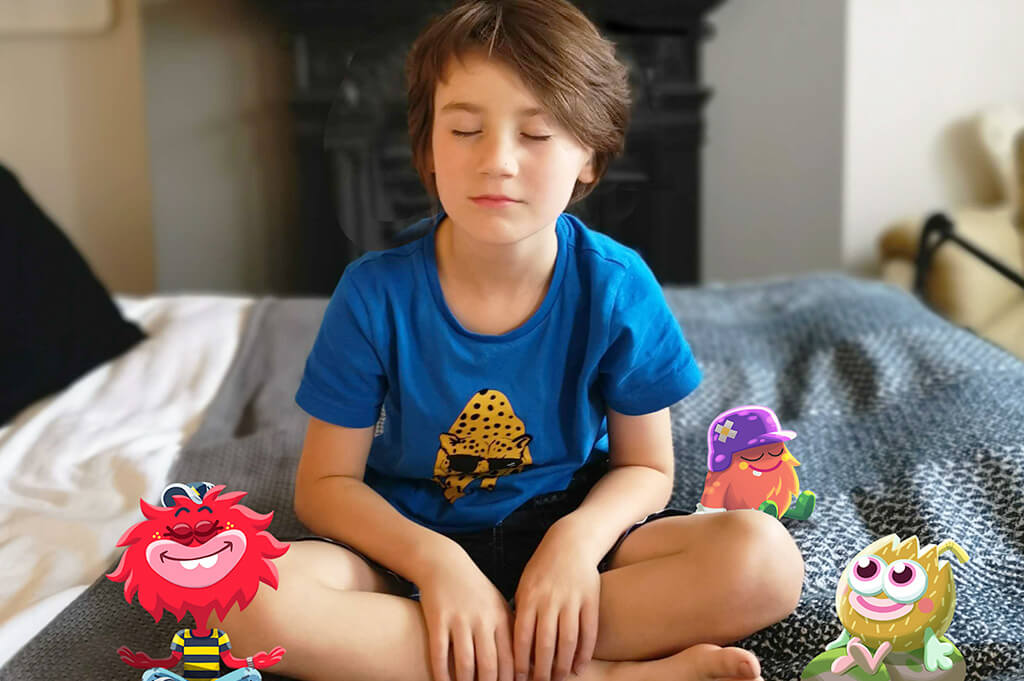
- 4 mins
A Simple Guide to Sleep Meditation for Kids

Night terrors are a type of sleep disorder that can cause a lot of fear and anxiety in both kids and their parents. Night terrors are most common in children between the ages of 3 and 8. They usually happen in the first few hours after falling asleep and can last from several minutes to up to 45 minutes.
Night terrors are different from nightmares. Nightmares happen during REM sleep, and a child can usually remember them. Night terrors occur during non-REM sleep, and a child usually does not remember them.
There is no one single cause of night terrors. They may be caused by sleep deprivation, stress, fever, or changes in sleep schedule. Regardless of the cause, however, it is important to understand how to help your child if they are experiencing them.
If your child is experiencing night terrors, there are some things you can do to help them. According to Van Horn and Street (2021), night terrors are typically followed by a state of helplessness and panic. Thus, it is extremely important to help soothe your child when they experience a night terror.
Stay calm: It is important to stay calm and not panic. It will help your child feel more relaxed.
Talk to your child: Speak to your child in a calm and soothing voice. This will help to ease their anxiety.
Reassure your child: It is important to reassure them that they are safe and you are there for them.
Do not try to wake them: Do not try to shake your child awake as this may scare them more.
It is important to ensure a calm, consistent routine for bedtime. This can include a soothing lullaby or story. Check out some of Moshi’s bedtime stories by clicking here.
It would be ideal to have a certain time that children should be in their beds with the lights off too. This routine creates structure and predictability for children and might lead to a quieter mind before they go to sleep. And although some sleep specialists don’t encourage a night-light, it might be a calming strategy for your child to have a few comforting “glow in the dark” stickers to reference.
If your child is experiencing night terrors, you should speak to their doctor. Night terrors are usually not harmful, but they can be a sign of another sleep disorder such as sleep apnea. If your child has frequent night terrors, their doctor may refer you to a sleep specialist.